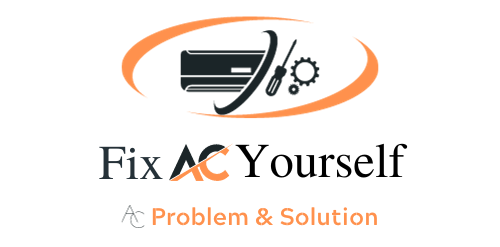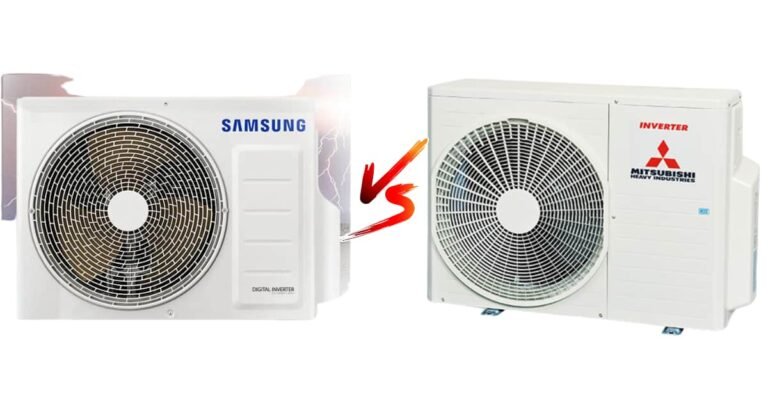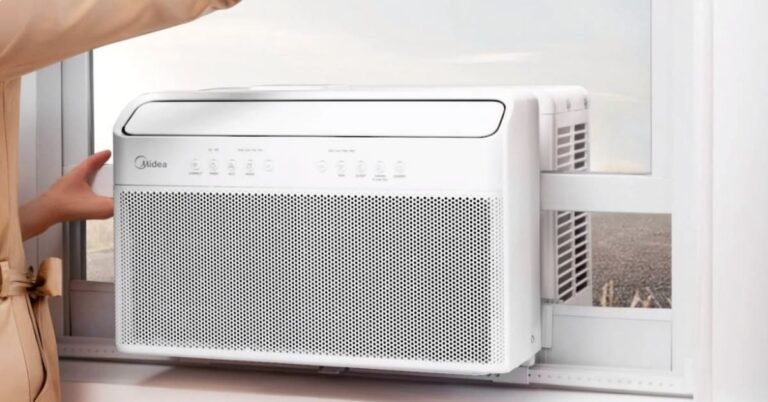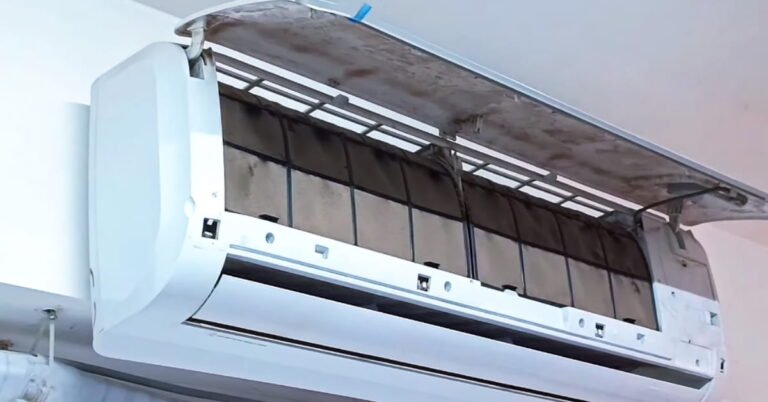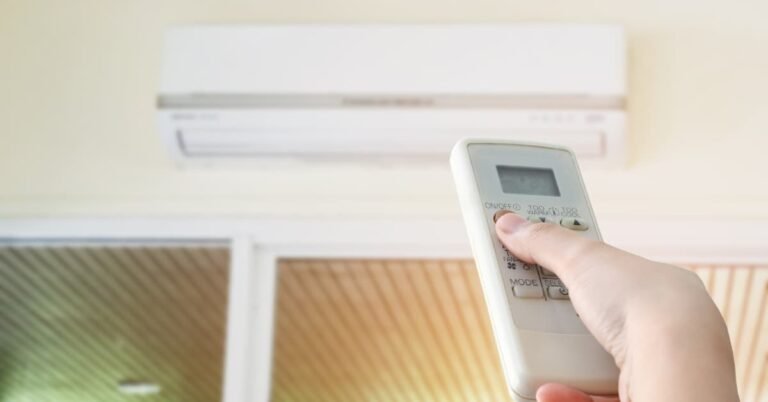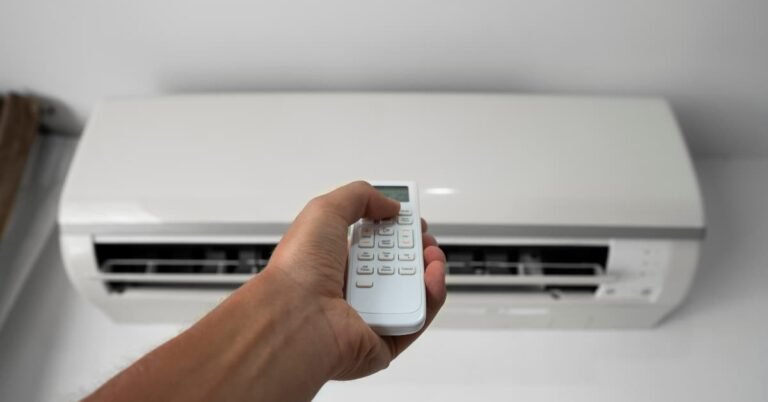Clean AC Filter Vs Dirty AC Filter – Boost Efficiency
A clean AC filter optimizes airflow and efficiency, while a dirty one impedes system performance and air quality. Proper filter maintenance is crucial for energy savings and prolonging HVAC lifespan.
A clean filter not only facilitates better air flow but also prevents dust and debris from building up in your HVAC system. Which can lead to costly repairs and decreased indoor air quality.
And dirty filters can cause many problems with your air conditioner. This can make your AC use more energy, leading to higher utility bills.
Regularly cleaning and replacing your AC filter is an important aspect of home maintenance that contributes to a healthier living environment.
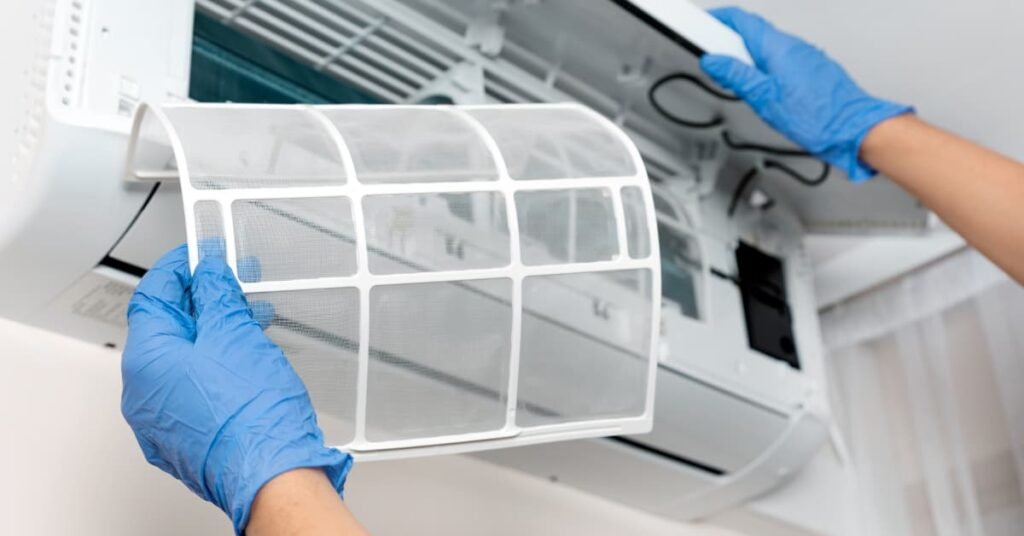
Benefits Of A Clean AC Filter
A clean AC filter has lots of advantages. Understanding these can lead to not only improved health and comfort but also saving money.
Better Air Quality
Clean filters play a pivotal role in the air you breathe. A clogged filter can’t trap contaminants effectively, leaving dust and allergens free to circulate.
But a clean filter works tirelessly to remove these particles. Ensure leaner air that’s easier on your lungs and beneficial for everyone, especially those with allergies or asthma.
Lower Energy Bills
A dirty AC filter forces your system to work harder. This increased effort translates to higher energy consumption.
A clean filter ensures smooth airflow, reducing energy demands. Monitoring and maintaining a clean filter can lead to noticeable savings on monthly energy bills. These small steps compound over time, reflecting positively in your yearly expenses.
Improved AC Efficiency
The proficiency of your AC unit is directly tied to the cleanliness of its filter. A clean filter means your AC can operate at peak performance. This not only cools your space faster but also extends the life span of your AC unit.
- Less strain on the system components.
- Fewer repairs due to wear and tear.
- Long-term cost savings on maintenance.
Embrace the habit of regularly checking and cleaning your AC filter. The investment of time and effort pays dividends in a healthier living space and a thicker wallet.

Problems Caused By A Dirty AC Filter
A dirty filter forces the whole system to work harder, leading to numerous problems that affect comfort and safety.
Poor Air Quality
A clean AC filter traps pollutants and allergens, making the air safer to breathe. A dirty filter does the opposite, letting these harmful particles circulate in the home. This leads to:
- Dust buildup on surfaces and in the air.
- Aggravation of allergies and asthma.
- Unpleasant odors spreading through the vents.
Reduced Energy Efficiency
With dirt blocking the airflow, the AC has to use more energy. The system’s efficiency drops and energy bills climb. Key points include:
- Increased power consumption due to harder work.
- Higher utility bills from the extra energy used.
- More frequent repair calls as components wear out sooner.
Potential Health Issues
Health risks can’t be seen but they’re real. A dirty filter can cause:
- Respiratory problems from polluted indoor air.
- Triggering asthma attacks due to poor air quality.
- Headaches and fatigue from lack of fresh air.
Maintaining a regular filter cleaning schedule helps mitigate these issues, contributing to a healthier home environment and lower costs.

When To Clean Or Replace Your AC Filter?
Knowing when to clean or replace your AC filter is a key aspect of home maintenance. A well-kept filter ensures that your AC operates optimally while reducing energy costs and preventing system overload.
Frequency Of Ac Filter Cleaning
The frequency of cleaning depends on various factors. These include household dust levels, pet ownership, and air pollution. As a rule of thumb:
- Homes without pets require filter cleaning every 90 days.
- For pet owners, a 60-day routine is better.
- Multiple pets or allergies in the home may warrant a 30-day schedule.
Signs Of A Dirty Ac Filter
Recognizing a dirty filter is simple when you know the signs. Keep an eye out for:
- Visible dirt and dust buildup on the filter.
- An unexplained increase in energy bills.
- Reduced airflow from vents.
- An unusual amount of dust around the house.
- A musty odor when the AC is on.
Regular inspections can prevent these issues before they escalate. Check your filter monthly and follow the cleaning or replacement recommendations to maintain a healthy, efficient AC system.
How To Clean Your AC Filter?
Your AC needs regular cleaning for top performance. Learn to clean your AC filter with these simple steps.
Shut Off Your AC Unit
Always turn off your AC before cleaning. This prevents electrical hazards and protects the system. Look for the AC’s power switch or unplug it from the wall.
Remove The AC Filter
Most AC units have an easy access panel or slot. Open the panel and slide the filter out. Some might be secured with fasteners. Use a screwdriver if necessary. Handle the filter gently to avoid damage.
Clean The AC Filter
Begin by vacuuming the filter to remove loose dust. After vacuuming, you can rinse the filter with warm water. Avoid harsh cleaners as they can damage the filter. If the filter is very dirty, use a mild detergent. Let the filter air dry completely before replacing it.
Replace The AC Filter
Once dry, return the filter to the unit. Ensure it fits snugly in place. If it looks worn out, consider a replacement. Replacing filters when necessary prevents airflow issues and maintains air quality.
This approach to AC filter cleaning can lead to lower energy bills and a cleaner home environment. Regular maintenance keeps your AC running efficiently for longer periods.
Conclusion
Maintaining a clean AC filter isn’t just beneficial—it’s essential. A gleaming filter means improved air quality and enhanced unit efficiency. Conversely, neglecting this simple task can lead to costly repairs and poor health outcomes. Remember, regular filter cleaning is the key to keeping your cooling system and wellbeing in top shape.
Choose cleanliness for optimal performance.
